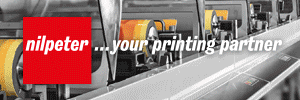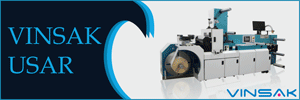Metal packaging is a genuine multitasker Sizes and shapes can be combined in nearly any way. Therefore, metal can package the entire spectrum of consumer and industrial goods in a safe, cost-efficient and environmentally friendly form. In addition, metal packaging offers absolute product protection: It is impervious to light and oxygen and thus increases the durability and freshness character of the product. Because of its hygienic properties, metal packaging is utilised particularly frequently for food and body care products as well as in the pharmaceutical industry. (Source: APEAL)
The trend is heading towards more consumer friendliness due to new easy-open systems, reclosable cans as well as microwave-suitable and self-heating metal containers. In addition, the manufacturers are focusing not only on individualized shaping and designing but also on further decreases in the wall thicknesses. Moreover, the industry is constantly working on making coatings more cost-efficient and environmentally friendlier.
One advance in this direction is vegetable packaging made of tomato waste: In this respect, tomato skins which are normally disposed of as waste are utilised as particularly health-compatible coatings on the internal and external walls of tin cans. For this purpose, a resin is isolated from the skins and processed further into paints. In the long term, the use of favorable raw materials should serve to increase the attractiveness of metal packaging compared with plastic solutions. (Source: BIOCOPAC Project)
Very delicate sheet
The industry is constantly reducing the thicknesses of lids and can bodies – to under 0.09 mm in the meantime. Beverage can walls made of tinplate even manage 0.07 mm. For comparison purposes: A human hair is 0.12 mm on average. (Source: thyssenkrupp Rasselstein)
The lower material thickness has positive consequences for the weight. In 1935, the first beer cans still brought 100 grammes and more on to the scales. Today, a half-litre can made of aluminum weighs just 16 grammes – with a shrinking tendency. (Source: BCME)
Slimming for posterity
With Europe-wide sales of 60 billion units, a single gramme less per beverage can saves around 60,000 tonnes of metal – that corresponds to more than eight times the weight of the Eiffel Tower. (Source: BCME)
Steel packaging is the recycling star amongst packaging. For example, 76 % of all steel packaging was recycled Europe-wide in 2014. Thus, steel was the most-recycled packaging material in Europe already for the tenth time in succession. (Source: APEAL)
In Germany, even 93.1% of steel packaging was recycled in 2014. The rate is thus over 90% for the ninth time in succession. For tinplate, the recycling rate was even 95.9%. Germany is one of the frontrunners in Europe. Merely Hungary is still ahead of Germany with 94.6% of recycled steel packaging. (Source: GVM)
Recycling records with regard to aluminum
In 2014, the recycling rate of aluminum packaging was 91.8% in Germany: Around 95,800 tonnes of aluminum was recycled. The aluminum beverage can is doing particularly well: In 2013, 99% of all aluminum beverage cans were recycled in Germany. Otherwise, only Finland achieves this top value Europe-wide. (Sources: GVM & EAA)
The high recycling rates of aluminum result from the advantageous properties of the material: Aluminium is a so-called permanent material which can be recycled infinitely often without any loss of quality. Moreover, only around five% of the energy necessary for the production of primary aluminium must be expended during the recycling operation. For the industry, that is an additional incentive to develop the most efficient recycling systems possible. In spite of shortcomings at the beginning of its use, around three quarters of the aluminum ever produced is still being utilized today. Thus, aluminium is one of the most economically valuable secondary raw materials. (Sources: AEROBAL & GDA)
The beverage can continues to gain ground in Germany and is breaking a sales record: In 2015, the beverage can skipped over the two-billion barrier in Germany for the first time again – around 2.08 billion cans were brought to the customers. In comparison with 2014, that corresponds to a plus of 12%. In total, 63 billion cans were sold in Europe. (Source: BCME)
Turnover plus thanks to the thirst for beer: In 2015, 40% of the 2.08 billion beverage cans turned over in Germany were filled with beer. In particular, the good summer in which heat records were broken all over the country boosted the turnover. Not only the good cooling capability of the material but also logistical advantages such as the low weight or the stackability are contributing to the growth. (Source: BCME)
More than one can per person on Earth: In 2014, 7.6 billion aluminum aerosol cans were produced worldwide – a plus of four% in comparison with the previous year. Statistically, that corresponds to more than one can per head. Above all in the markets in North, Central and South America as well as in Asia, it was possible to register above-average growth. With around 80%, a clear majority of the aerosol cans produced worldwide are accounted for by the field of body care products. (Source: AEROBAL)
Aerosol cans as a cyclical economic factor in the aluminum industry: In Germany alone, around 44,000 tonnes of aluminum was processed further into tubes, cans and aerosol cans in 2015. In total, 351,500 tonnes were manufactured in aluminum further processing in Germany in 2015. (Source: GDA)
Aluminum safesguards jobs: On the macroeconomic level, the aluminum industry plays in important role for the German national economy. In 2015, about 600 plants safeguarded the incomes of around 74,000 people. These are not only small businesses and medium-sized enterprises but also international conglomerates.










